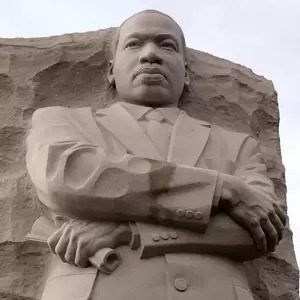
Then the Capitol breach happened and, on Jan. 7, Facebook released a statement regarding its suspension of outgoing President Donald Trump, and several other policy updates on political and controversial speech.
Austin’s arrival couldn’t come soon enough. His background highlights a body of work in the private and public sector, as a partner for Harris, Wiltshire & Grannis LLC, where he specialized in criminal defense and civil rights law; and as a deputy assistant Attorney General in the Department of Justice’s civil rights division.
Austin is the first of what will likely become a more prominent role in the evolving relationship between big technology companies and the country. Where Facebook is the first to employ a high-profile position of this nature, the company is far from the only major influencer with a platform that spreads and amplifies ideologies beyond their original scope. It is also far from the only major tech company with civil rights audits in their past and future.
On Sept. 24, 2018, Twitter agreed to a third-party civil rights audit, shortly after Facebook’s audit originally began. The audit is still pending the results will likely bear a striking resemblance to Facebook given the similarities between Facebook and Twitter’s handling of outgoing Trump’s social media presence.
In December, Amazon’s shareholders commissioned the company’s board of directors for a civil rights audit. This likely came as a direct response to the lawsuit facing Amazon, accused of failing to protect minority workers and unlawfully terminating whistleblowers.
More audits could be on the way as lawsuits abound throughout the data tech industries. Uber faces a civil rights lawsuit for discriminating against minority drivers. Pinterest recently settled a $20 million gender discrimination lawsuit and is trying to address further allegations of racism in the workplace. Snapchat is undergoing their own internal investigation on workplace discrimination. And, YouTube and Google are facing lawsuits that allege their systems are racially biased and eliminating minority content.
While Facebook, Twitter and YouTube are trying to stem criticism by undergoing additional audits of their dealings with hate speech, these are still largely reactionary efforts made under duress. These companies could take a page from Airbnb, which on June 15 partnered with the Color of Change to combat discrimination after a successful audit and evaluation.
Lawsuits and audits are poised to stay hot button issues for years to come. As we saw the Black Lives Matter movement gain global recognition and highlight a corporate push for diversity and inclusion, and as the presidency goes to Joe Biden, the handling of civil rights will once again be a top focus for the tech industry – and not just on Martin Luther King Jr. Day. No longer is this simply a question of avoiding discrimination lawsuits. For big tech, staying informed and keeping consistent will be just as important as leading the charge when the next big civil debate gains traction.
Should any of these organizations require a short list of candidates for a new civil rights post, Leadership Connect followed Austin’s wealth of legal knowledge and his history of working on civil rights issues within the federal government.






